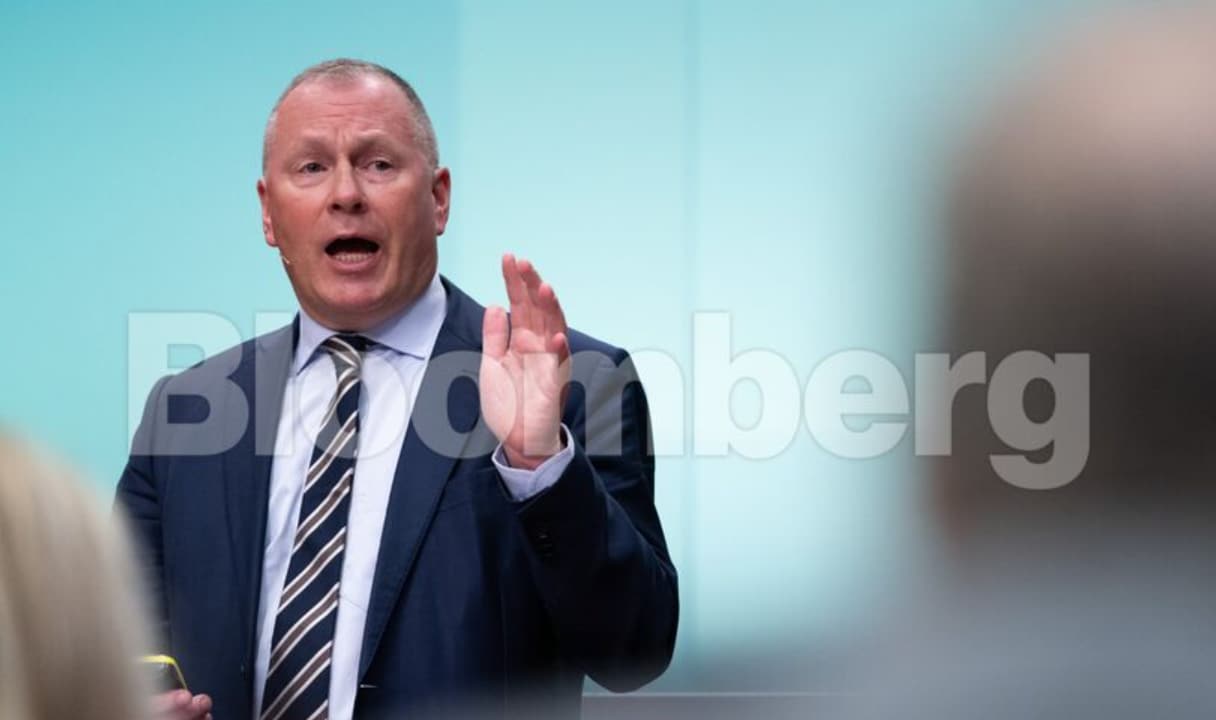
Norway's $1.9 trillion sovereign wealth fund has divested from 11 Israeli companies and is terminating all contracts with external managers in Israel following public outcry over its investments linked to the war in Gaza.
Pressure on Norges Bank Investment Management — the official name of the fund — has grown in recent months, reflecting domestic concern over the suffering in the Palestinian enclave. The fund held stock in some 61 Israeli companies as of the end of June this year, NBIM said in a statement.
“We are taking these measures in a very special conflict situation,” NBIM Chief Executive Officer Nicolai Tangen said, describing what's happening in Gaza as “a serious humanitarian crisis.” The move follows a finance ministry review of the NBIM's holdings in Israel.

The fund is largely an index tracker, but with some room for active management. NBIM said it will end all its active management in Israel. Its total holdings in the country represent 0.1% of the fund, or about $2 billion before the divestment. It has already sold all stocks in the 11 companies that are not part of the index. The fund also said it will remain invested in some but not all of the Israeli companies in the index.
NBIM — which owns about 1.5% of the world's stocks — has long sought to remain apolitical, though its mandate includes guidelines set by parliament that reflect broadly held public views on issues ranging from land mines to climate change. It is advised by an external ethics council, which assesses the portfolio on an ongoing basis and recommends companies for exclusion or observation.
Still, NBIM's position as the world's biggest sovereign wealth fund has drawn the attention of politicians and activists. In 2022, the fund decided to freeze and sell its Russian holdings in response to Moscow's full-scale invasion of Ukraine. Later that year, a government-appointed panel warned that the fund was likely to face increasingly challenging moral dilemmas.
In a recent poll, 78% of respondents said they wanted NBIM to exclude companies that do not respect human rights. The fund has previously excluded 11 companies due to their activities in the West Bank.
Norway recognized Palestinian statehood in May last year and has repeatedly called for Israel to let more humanitarian aid into Gaza.

Finance Minister Jens Stoltenberg ordered a review of all Israeli investments last week after the newspaper Aftenposten reported that one of the fund's holdings, Bet Shemesh Engines, services fighter jets used to attack Gaza.
NBIM first bought a 1.3% holding in Bet Shemesh Engines in 2023, and increased its position to 2.1% last year, according to its website.
“The decisive factor is not really whether they are Israeli or not,” Stoltenberg told reporters in Oslo on Monday. “The decisive factor is whether or not they contribute to violations of international law.”
The debate over the fund's holdings in Israel comes at a sensitive time for the ruling Labor Party, which is leading in opinion polls ahead of next month's parliamentary elections. The Labor Party has been critical of Israel's war, saying it violates international law. The Green Party, one of the smaller opposition forces, has called for the resignation of Tangen, the fund's CEO, and the Socialist Left has demanded a review of what the government knew about the investments.
“Because we are approaching an election, various parties are using this to advance their own interests and define themselves,” said Karin Thorburn, who teaches at the Norwegian School of Economics and the Wharton School at the University of Pennsylvania. Still, she said, “no one wants the oil fund to become a political tool, because that creates a slippery slope.”
Essential Business Intelligence, Continuous LIVE TV, Sharp Market Insights, Practical Personal Finance Advice and Latest Stories — On NDTV Profit.























